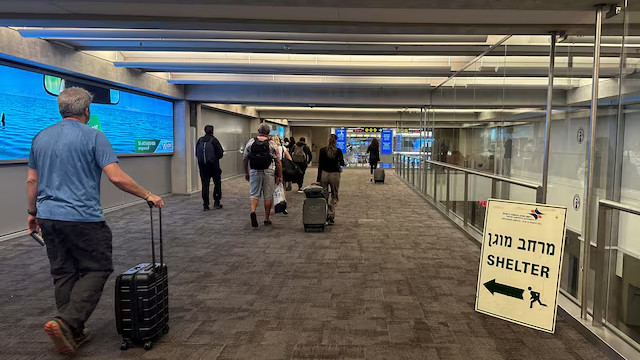Middle East airspace shuts down after Israel attacks Iran. Airlines like Emirates, Lufthansa and Air India cancel or reroute hundreds of flights, disrupting global travel.
Middle East airspace was shut down on Friday following Israeli airstrikes on Iranian military and nuclear sites. This sudden conflict forced many airlines to cancel or change flight routes to avoid dangerous areas. Airports like Tel Aviv’s Ben Gurion closed, and airlines such as El Al, Air France, Lufthansa, Emirates, Ryanair, Wizz Air, and Air India stopped or redirected flights.
Flight tracking showed empty skies over Iran, Iraq, Jordan, and Israel, with planes rerouted mainly through Saudi Arabia, Egypt, and Turkey. Europe’s air traffic agency reported that over 1,800 flights were affected in a single day, including about 650 cancellations.
Israel said it targeted Iran’s nuclear and military sites to prevent Tehran from developing a nuclear weapon. In response, Iran and neighboring countries closed their airspace. Iraq, Jordan and Russia also banned flights over the region until at least June 26.
Read More: Why aren’t Liverpool, Barcelona, and Napoli participating in the FIFA Club World Cup 2025?
These airspaces are vital for flights between Europe and Asia. With the war in Ukraine already closing Russian airspace, airlines now face longer, costlier routes that increase travel times and fuel expenses. Airline stocks dropped, and oil prices rose due to the crisis.
Flying near conflict zones is risky. Since 2001, six commercial planes have been unintentionally shot down, and many close calls have occurred. Passengers are anxious, with many stuck or delayed. One traveler said that “We had to turn back mid-flight without warning it was very frightening.”
The Middle East airspace shutdown is likely to continue for days, causing ongoing disruptions. Airlines are working hard to keep passengers safe, but the situation highlights how conflicts can quickly affect global travel and everyday lives.
















